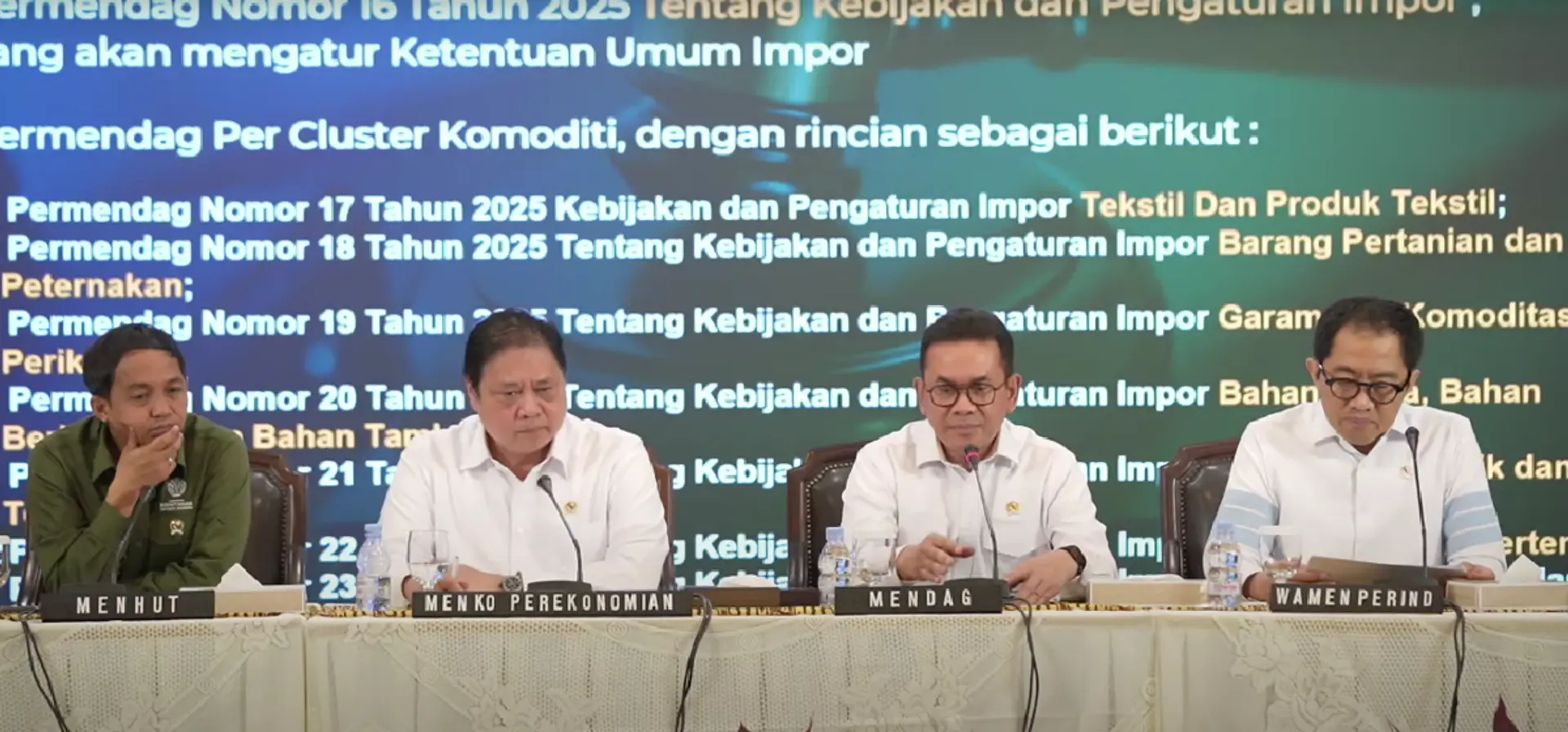The Indonesian government has officially revoked Trade Ministry Regulation (Permendag) Number 8 of 2024, a policy that governed import rules and was often criticized for creating obstacles for businesses. The move is part of the First Deregulation Package, which aims to simplify the import process and foster a more attractive investment climate.
Trade Minister Budi Santoso announced that Trade Ministry Regulation 8/2024 and its predecessor, Trade Ministry Regulation 36/2023, have been replaced by nine separate Trade Ministry Regulations, each focusing on specific import sectors.
“The output of this import deregulation policy is the revocation of Trade Ministry Regulation 36/2023 and Trade Ministry Regulation 8/2024. We have now issued nine new Trade Ministry Regulations,” Budi explained, as quoted by CNBC Indonesia during a press conference in Jakarta on June 30, 2025.
According to Budi, dividing the regulations by clusters allows the policy to remain dynamic and responsive to market changes.
“These regulations are split per cluster to make it easier to adjust when there are future changes, because Trade Ministry Regulation policies must adapt quickly,” he added.
The nine new regulations cover:
1.General import provisions (Trade Ministry Regulation 16/2025)
2.Textiles and textile products (Trade Ministry Regulation 17/2025)
3.Agricultural and livestock goods (Trade Ministry Regulation 18/2025)
4.Salt and fishery commodities (Trade Ministry Regulation 19/2025)
5.Chemicals, hazardous materials, and minerals (Trade Ministry Regulation 20/2025)
6.Electronics and telematics products (Trade Ministryl Regulation 21/2025)
7.Specific industrial goods (Trade Ministry Regulation 22/2025)
8.Consumer goods (Trade Ministry Regulation 23/2025)
9.Used goods and non-hazardous waste (Trade Ministry Regulation 24/2025)
These rules will become effective two months after their enactment to give businesses time to prepare infrastructure and systems.
Focus on Textiles and Strategic Sectors
The textile sector remains under tight supervision. Budi emphasized that textile and textile products, batik-patterned textiles, and finished textile goods will continue to face import restrictions.
“In the new regulations, these commodities are still subject to import licensing and technical considerations,” Budi said.
He also explained that ready-made clothing and accessories will now require both an import approval (PI) and technical recommendations from the Ministry of Industry, in addition to surveyor reports.
Previously, ready-made clothing needed import approval and surveyor reports, but now technical considerations are also required. The safeguard duties have ended, and the government is working to renew them,” he confirmed.
Easing Business and Strengthening Economic Resilience
The deregulation package reflects President Prabowo Subianto’s instruction to improve Indonesia’s business ecosystem amid global trade uncertainties. Coordinating Minister for Economic Affairs Airlangga Hartarto explained the initiative aims to attract investment, maintain economic growth, and create jobs.
“The government wants to build a more competitive ecosystem, attract investment, and expand employment, especially in labor-intensive sectors,” said Airlangga as quoted by Fortune.
Beyond imports, the government also issued Trade Ministry Regulation 25/2025, which revises procedures for franchise registration, and Trade Ministry Regulation 26/2025, which revokes four domestic trade rules overlapping with higher-level regulations.
Airlangga highlighted that the deregulation covers ten priority commodities, including forestry products, subsidized fertilizers, plastic raw materials, certain chemicals, and bicycles. For five of these, import restrictions have been lifted entirely, while the others now only require surveyor reports.
“This is a concrete step to ease business and strengthen Indonesia’s competitiveness,” Airlangga concluded.
Source: Bisnis, CNBC Indonesia, Fortune
Special Photo Credit: Ministry of Trade Youtube


